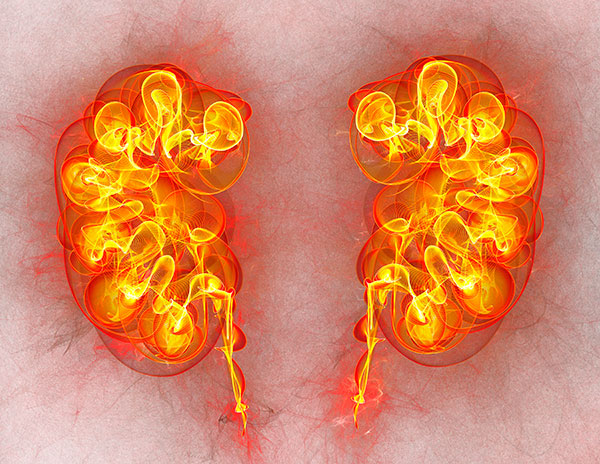Cardiovascular
Protein That Helps Treat Cardiovascular Disease May Also Aid in Kidney Disease
A new study from Aarhus University demonstrates that a protein known for treating cardiovascular diseases also affects a mechanism in the kidney that reabsorbs proteins. This finding could lead to new treatment options for chronic kidney disease.
The new study is published in Kidney International in an article titled, “Proprotein convertase subtilisin/kexin type 9 targets megalin in the kidney proximal tubule and aggravates proteinuria in nephrotic syndrome.”
“Proteinuria is a prominent feature of chronic kidney disease,” wrote the researchers. “Interventions that reduce proteinuria slow the progression of chronic kidney disease and the associated risk of cardiovascular disease. Here, we propose a mechanistic coupling between proteinuria and proprotein convertase subtilisin/kexin type 9 (PCSK9), a regulator of cholesterol and a therapeutic target in cardiovascular disease.”
The researcher behind the study, associate professor at the department of biomedicine at Aarhus University, Kathrin Weyer, PhD, explained, “We have found that a protein called PCSK9, which influences the cholesterol level in the blood and increases the risk of cardiovascular diseases, has completely new and unexpected effects in the kidneys. In the study, we can see that PCSK9 regulates a receptor in the kidneys that controls the amount of protein excreted in the urine. This knowledge can potentially be used to treat patients whose kidneys are overloaded and therefore have an accumulation of protein in their urine.”
“Chronic kidney disease is a growing problem both domestically and globally. Therefore, new treatment options are necessary. We demonstrate a new molecular mechanism by which PCSK9 affects the development of proteinuria. This mechanism has not been previously known,” she explained.
Working in mice, the researchers discovered that PCSK9 binds to and downregulates the megalin receptor in the proximal tubules, modulating protein reabsorption in the kidneys. Their findings suggest future studies should determine if PCSK9 inhibitors may act beyond their lipid-lowering effects and provide renal protection in proteinuric kidney disease patients.
Weyer and the research team now hope to further investigate the use of PCSK9 inhibitors in the treatment of kidney diseases.
“Our study provides a basis for further studies that will examine whether the use of PCSK9 inhibition is beneficial in kidney diseases. If it turns out that it actually enhances treatment, then within a relatively short period, a completely new form of therapy can be offered to kidney patients.”

